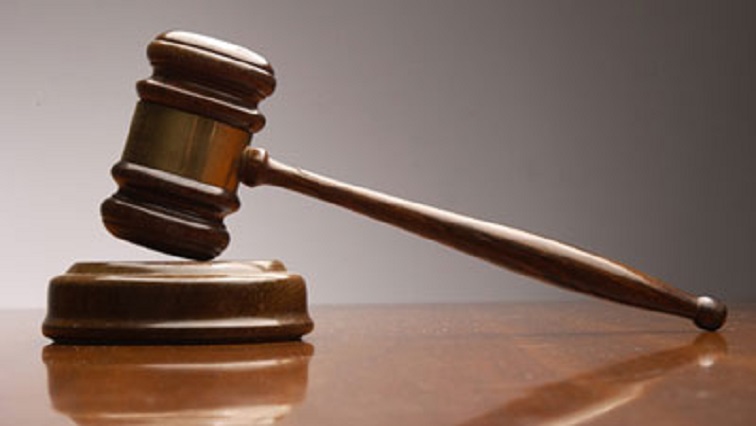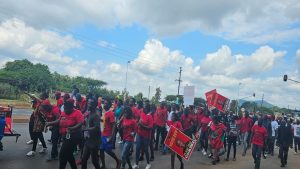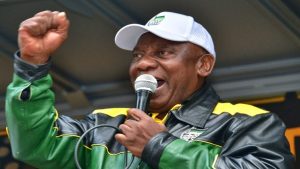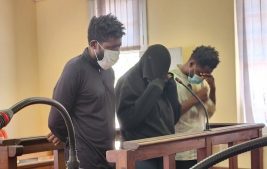The Economic Freedom Fighter’s (EFF) application in the High Court in Pretoria to have the bank statements and financial records of donors to President Cyril Ramaphosa’s 2017 African National Congress (ANC) presidential campaign, also known as CR17, unsealed will continue tomorrow. ‘
Deputy Judge President Aubrey Ledwaba sealed the CR17 financial records in August 2019 after Ramaphosa’s legal team argued they were illegally obtained by the Public Protector during her investigation into his campaign.
The EFF brought an application in the High Court asking for the documents to be unsealed.
The EFF told the High Court in Pretoria that unsealing the financial records of President Cyril Ramaphosa’s 2017 ANC presidential campaign might stop possible corruption that could flourish through private funding. Advocate Ishmael Semenya, SC, for the EFF, says it is imperative for the democratic project in South Africa to have transparency.
“We’re entitled to know who those individuals are and what amounts were paid because from there we can make an intelligent connection of dots to see whether or not the conduct of governance in is furtherance of the interest of those individuals or not.”
He says they do not say anything untoward happened during the CR17 campaign but that the donors knew they were supporting the next likely president of the country when they donated to the campaign.
Semenya mentioned Benjani Chauke as an example.
“Having been the chairman of the CR17 campaign, having collected money for the purposes of getting the president to number one position, is not a special advisor to the president. Now we’re making the submission that that on its own must then make curious the public to say is there any other dots that need to be connected arising from that fact?”
CR17 campaign funding case proceedings:
Advocate Kameel Premhid, further argued on behalf of the EFF that neither the CR17 campaign nor the donors have a right to confidentiality even though the CR17 fundraising committee gave an undertaking to the Ria Tenda Trust and Linkd Environmental Services to keep their information confidential.
“There is an intrinsic value in the record relied on by a decision-maker being public so that the public for themselves can see what the evidence was in front of the decision-maker when they made their decision, and can for themselves see. Oh yes the court overturned the Public Protector because the look on page whatever of the Rule 53 record, it says the cat is black but in her report, she says the cat is white.”
Advocate Wim Trengrove, SC, on behalf of President Ramaphosa however told the court the financial statements were never handed in to the court record and therefore it is not in the public domain.
“The records we’re talking about never reached the court. This matter was decided by a full bench of the Gauteng High Court, and it has been debate on appeal in the ConCourt, never in either of those two courts did these documents serve and neither did those two courts know anything about them or decided cases on them. They simply do not form part of the body of information to which the open justice principle applies.”
He said the documents were made available to the EFF earlier on in the legal proceedings.
“It is information about which they were given access and the exercise the choice, I don’t know how they did it, they either chose not to look or they looked and chose not to incorporate it in their case. But it never got into court, not because of the seal but because the parties chose not to place it before the court because it was irrelevant.”
Trengrove told the court the documents are private information and is therefore constitutionally protected. He said under the Executive Ethics Code the president did not have to disclose the documents.
“The public interest will certainly come into play if the open justice principle applies. But we need to take a step back; there is a public interest in disclosure firstly under the Executive Ethics Code. And that is the primary instrument that regulated disclosure of this kind. But there we have full court judgment that the president was not required to disclose any of these donations under the code and that was simply because he demonstrated he didn’t personally derive any financial benefits from any of these donations.”
He said a full bench of judges ruled the Public Protector’s investigation into the CR17 campaign was unlawful and therefore the financial documents she used were fruits of a poisoned tree. Advocate Les Morison, SC, representing the Financial Intelligence Centre (FIC), told the court the Public Protector requested a financial report into the CR17 campaign.
The FIC provided the report on the condition that the confidentiality of the information is maintained.
“ If you are going to pass it on to anybody you’re obliged under section 14 sub 4 to let us know, particularly when it is going to court. What the Public Protector did was pass it directly on to the court in its unfiltered fashion bringing a great deal of information potentially into the public eye, that shouldn’t have been there, in contravention of this act.”
The case continues tomorrow.






